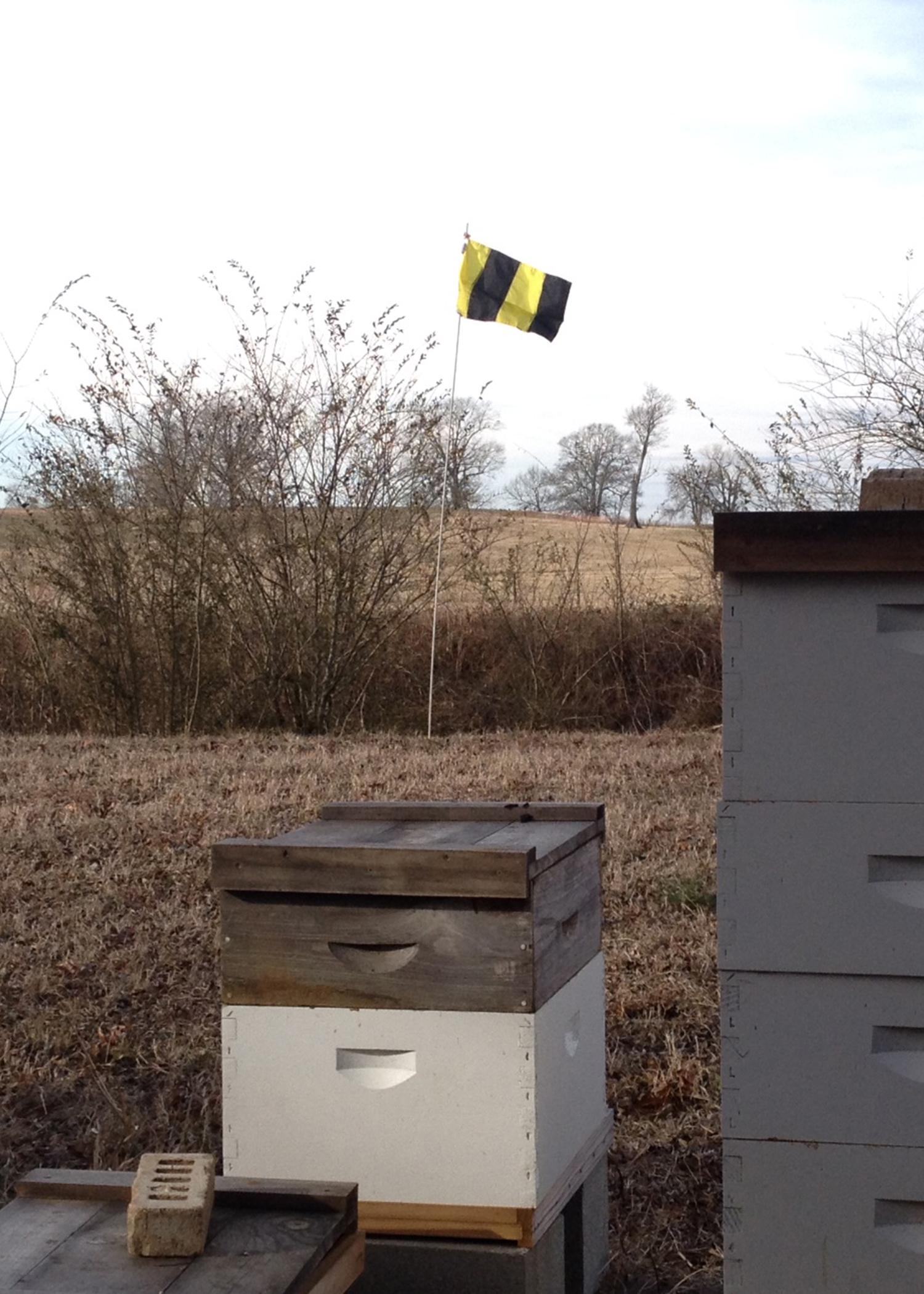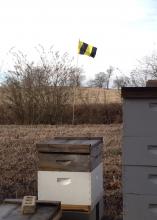Information Possibly Outdated
The information presented on this page was originally released on February 3, 2014. It may not be outdated, but please search our site for more current information. If you plan to quote or reference this information in a publication, please check with the Extension specialist or author before proceeding.
MSU Extension joins effort to protect state's honeybees
MISSISSIPPI STATE -- Mississippi farmers and beekeepers are working together to protect the state’s pollinators from accidental exposure to pesticides used on crops.
Jeff Harris, Mississippi State University Extension Service apiculturist, said ongoing discussions over the course of several months resulted in the Mississippi Honey Bee Stewardship Program.
“In light of the global decline of honeybee populations, the Extension Service and Mississippi Farm Bureau Federations facilitated discussions to foster a better working dialogue among Mississippi’s row-crop farmers and beekeepers, all in the spirit of coexistence and cooperation,” Harris said. “The potential for great tension between these two groups exists because some commercial beekeepers keep thousands of colonies near soybean and cotton fields.”
Harris said these two crops bloom during hot and dry periods, when no other major food source is available.
“But farmers must manage pest populations to prevent damage to their crops, so there is a relatively high potential for honeybees to be killed accidentally by pesticide applications,” he said.
In some states, laws have been passed requiring beekeepers and farmers to follow certain protocols, but so far the level of cooperation in Mississippi has allowed for the stewardship program to be voluntary.
Angus Catchot, a row-crops entomologist with the MSU Extension Service, said he is pleased with the results of the collaboration.
“As this topic has gained attention over the last couple of years, I have been surprised to see how few farmers were aware of the issue. Now that they realize there is a problem, they have seemed more than willing to figure out how to work together,” Catchot said. “This program will certainly not eliminate all risks, but it will no doubt go a long way to head off future problems with acute bee kills.”
One component of the program is a unified flagging system to be used throughout the state to identify hive locations that are near agricultural fields. Beekeepers will work with farmers to place the black and yellow striped “Bee Aware” flags where they will be visible both on the ground and from the air, to alert pesticide applicators.
“The Mississippi Honey Bee Stewardship Program is setting a precedent by showing there is cooperation and commitment on both sides. They’re willing to work together to minimize the risk of economic losses by both the beekeepers and the farmers,” said Jeff Gore, entomologist with the Mississippi Agricultural and Forestry Experiment Station and MSU Extension Service. “The Bee Aware flags that resulted from this agreement are an additional tool to help raise everyone’s awareness about pollinator health and protecting pollinators.”
The Mississippi Honeybee Stewardship Program has been adopted by Mississippi Beekeepers Association, Mississippi Farm Bureau Federation, Mississippi Agricultural Aviation Association, Mississippi Agricultural Consultants Association, Mississippi Department of Agriculture and Commerce, and the MSU Extension Service.
For more information about the stewardship program, visit http://bit.ly/1fi9L2a.




